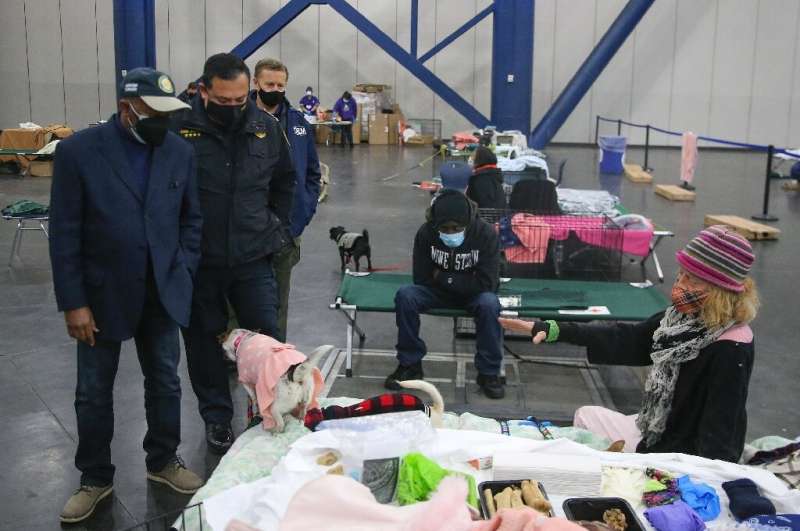Behind the power crisis in petroleum center Texas

Some 2.7 million households in Texas were still without power as of Wednesday morning in the wake of extremely cold weather buffeting the region.
But while the unusual Arctic air mass has lashed numerous states with snow and sleet with more on the way Thursday, Texas, the heart of the country's oil industry, has seen the worst of the power outages.
Why is Texas suffering an electricity crisis?
The Electric Reliability Council of Texas (ERCOT), which operates much of the state's power grid, underestimated the surge in demand caused by the unusually cold weather and used planned outages to avert an uncontrolled blackout.
Some families have been out of power for more than 48 hours.
The frigid temperatures also caused outages at key energy installations—natural gas-fired power plants, wind turbines and nuclear plants—which are not typically insulated as they are in other states with colder climates.
ERCOT was formed to give the state authority over its own power system rather than FERC, and hte outages were exacerbated by the fact that unlike other states, the power grid in Texas is largely disconnected from the national grid, which means it cannot import power in the event of outages.
Experts have pointed to several other factors behind the crisis, including a lack of surplus power capacity.
What is the government doing in response?
Texas Governor Greg Abbott ordered an investigation into ERCOT, and called on the state legislature to back the probe.
"The Electric Reliability Council of Texas has been anything but reliable over the past 48 hours," Abbott said. "Reviewing the preparations and decisions by ERCOT is an emergency item."
The Federal Energy Regulatory Commission (FERC) also said it will probe the factors behind the power outages.
Local officials around the state also are taking actions to protect citizens in the wake of the crisis. Houston has issued a boil water notice because of the risks of untreated bacteria, while the Salvation Army has opened community heating centers across North Texas.
What does the crisis say about energy-rich Texas?
Texas has long been at the center of the US energy system, home not just to the nation's biggest source of oil and natural gas supply, but also to global petroleum corporate metropolis Houston and to significant wind and solar capacity.
"This is a warning to the world that even energy abundant places can have problems and it can be catastrophic," said Michael Webber, a professor at the University of Texas and chief science officer at Engie Group in Paris
He warned that more extreme weather in the years ahead will pose a threat to the overall energy system in general.
However, the investigations announced thus far seem to aspire "to point fingers rather than find solutions."
He said he favors taking steps to weatherize power plants, improve building codes, have more diverse energy sources, build more energy storage capacity and link the Texas grid more broadly.
What does the crisis mean for renewable energy?
The Texas outages have quickly become a political football in a long-running US debate over whether to invest more in green energy.
Representative Dan Crenshaw, a Republican from Texas, lambasted "leftist" critics who are "cheering" the state's travails.
He argued on Twitter the crisis was caused by a "once-in-a-century" freeze that illustrated the unreliability of "oversubsidized" wind energy.
"Bottom line: fossil fuels are the only thing that saved us," he concluded.
But Crenshaw's comment drew a sharp response from Daniel Cohan, an engineering professor at Rice University, who called the congressman's analysis "deeply misleading."
"We are facing an energy systems crisis, not just an electricity crisis," Cohan wrote on Twitter.
"Every one of our sources of power supply underperformed. Every one of them is vulnerable to extreme weather and climate events in different ways."
FERC Commissioner Neil Chatterjee urged patience before reaching conclusions.
"Reliability is boring. It's complicated, it's difficult to tweet about, but at the end of the day it is our foremost responsibility," Chatterjee said on CNBC.
"I am confident if we take the politics out of this and let the engineers and the economists and the experts examine what went on here, we will figure out ways to continue the energy transition that's taking place in Texas and around the country while maintaining the reliable, affordable grid that really sets Texas and the United States of America apart from the rest of the world."
© 2021 AFP


















